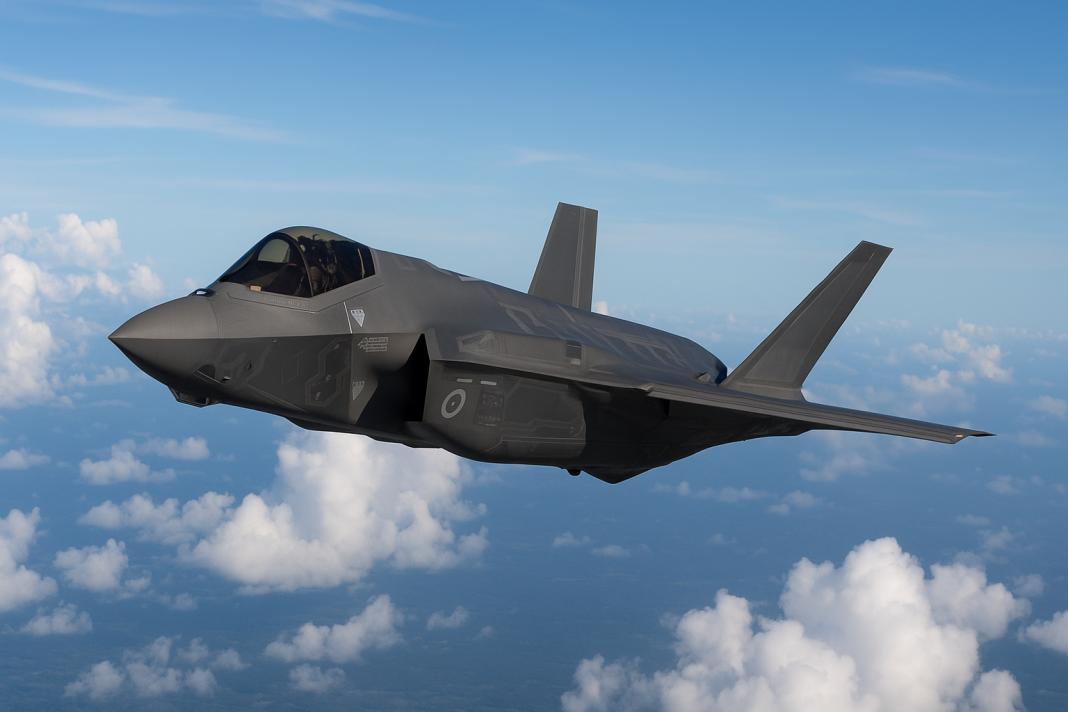Saudi Arabia’s long-standing dream of owning America’s most advanced fighter jets has moved one step closer to reality. According to two officials familiar with the matter, the U.S. Pentagon has allowed a key stage of a potential F-35 deal for 48 stealth jets to move forward.
Saudi Arabia’s Big Step Toward the F-35 Deal
If approved, this F-35 deal could be worth billions of dollars and would represent one of the most significant U.S. arms sales to Saudi Arabia in recent years. It would also mark a major policy shift for Washington, as only Israel has so far bought the F-35 in the Middle East.
Lockheed Martin builds the F-35, a state-of-the-art aircraft that avoids radar detection and performs both air defense and attack missions. Experts often describe it as the world’s most advanced fighter jet.
$600B Saudi investments in U.S. raise eyebrows as Trump benefits from oil windfall
Saudi officials made a direct appeal earlier this year to buy the F-35s, leading to ongoing talks between Washington and Riyadh. The Pentagon’s Defense Department has been reviewing the details of this F-35 deal, which has now reached the secretary level inside the department — a major internal milestone before final approval.
However, the process is still not complete. Officials still need to take several steps, including getting a sign-off from the U.S. president, completing additional Cabinet-level reviews, and formally notifying Congress. The F-35 deal cannot be finalized until they complete these steps.
The F-35 Deal Could Shift the Military Balance in the Middle East
If this F-35 deal goes through, it could reshape the balance of air power in the Middle East. Washington has long maintained a rule that Israel must retain the region’s strongest military capabilities, known as its “qualitative military edge.” For that reason, no Arab country has previously been allowed to purchase the F-35.
Israel has operated the aircraft for almost a decade, building multiple squadrons of these stealth fighters. This gives it a major technological and tactical advantage in the region.
Saudi Arabia, meanwhile, has been modernizing its air force with aircraft such as the F-15, Tornado, and Typhoon, but the F-35 deal represents a big leap in its defense power. The kingdom’s goal is to strengthen its military capabilities and counter threats from Iran.
UAE and Saudi open doors with golden visas as U.S. prices out talent with $100K H-1B Visa cost
The proposed 48-jet F-35 deal would provide Saudi Arabia with about two full squadrons of these advanced fighters. Military experts say the sale would not only boost the kingdom’s defense but also deepen U.S.–Saudi military cooperation.
While the Trump administration has shown interest in moving the process forward, Congress still needs to approve it. Lawmakers have previously raised concerns over large arms deals with Riyadh, especially after the 2018 killing of journalist Jamal Khashoggi. Some members of Congress remain cautious about approving the F-35 deal despite Saudi Arabia’s status as America’s biggest weapons customer.
Behind the Scenes of the Pentagon Review
Sources say the Pentagon’s policy department has been studying the F-35 deal for months, considering both its technical and political implications. The proposal has now reached senior levels within the Defense Department, strongly indicating that officials are seriously evaluating it.
Officials are studying how this F-35 deal could affect U.S. relations with Israel, how it fits into existing defense agreements, and whether it meets U.S. standards for foreign arms sales.
The Pentagon and the White House have not yet commented publicly. A spokesperson for Lockheed Martin said the U.S. government handles all such military sales as government-to-government agreements and should make any official announcements.
Saudi Arabia issues fierce warning as West Bank annexation threatens ties with Israel
The timing is significant as the fighter jet sale moves forward just before the Saudi Crown Prince’s visit to Washington, where defense ties will be a key topic.
Earlier, the Trump administration signed a $142 billion arms package with Saudi Arabia, described as the largest U.S. defense cooperation deal ever. The new proposal could add to that record if approved, though it still requires several layers of review.
The planned purchase also fits into Saudi Arabia’s Vision 2030 plan, aimed at boosting economic growth and military modernization while maintaining close defense ties with Washington.
Officials say no final decision has been made. The sale remains under review and must pass through Congress, which could delay or block it. Still, clearing a key Pentagon hurdle signals that the U.S. is seriously considering the request.

